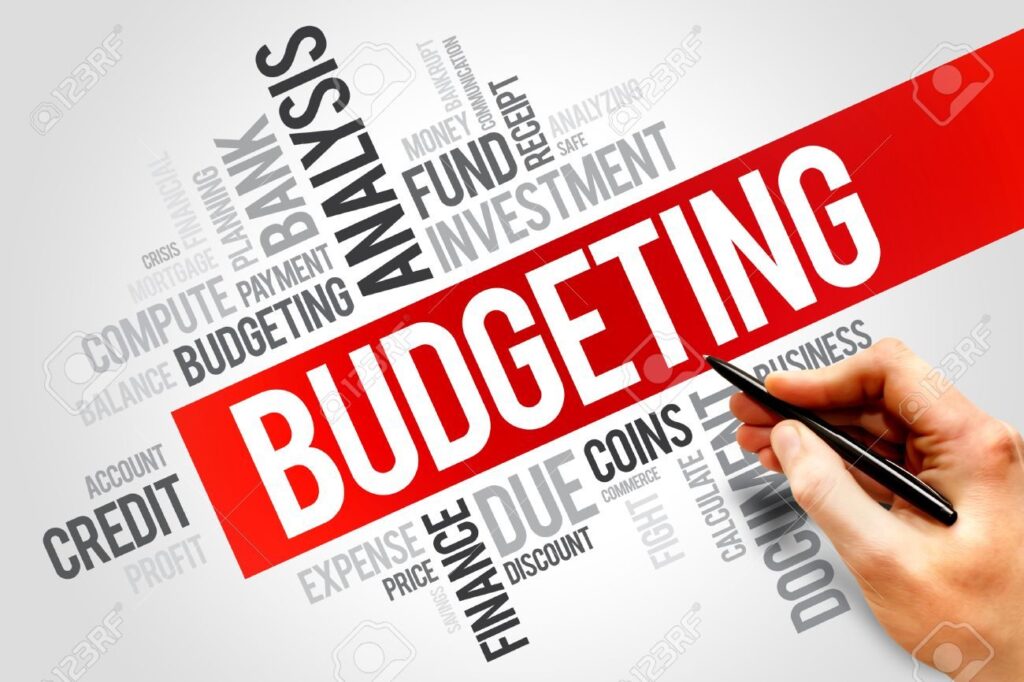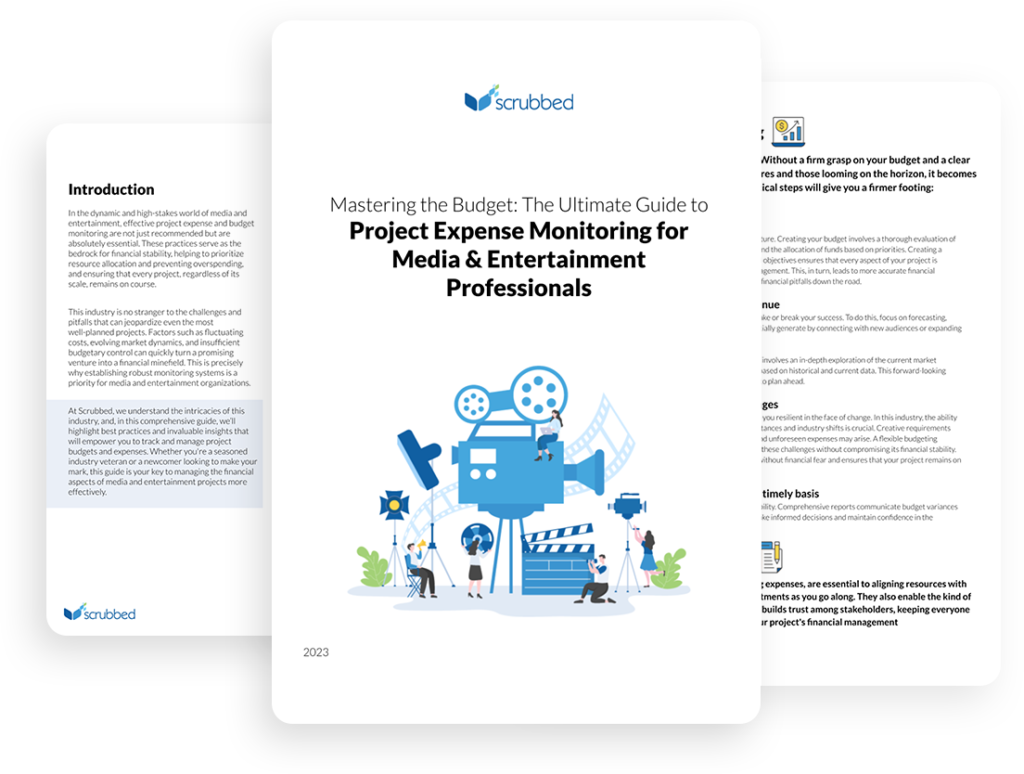
Budgeting in finance refers to the process of creating a plan for managing and allocating financial resources. It involves estimating and tracking income and expenses to ensure that funds are used efficiently and effectively.
By setting specific targets and guidelines, budgeting helps individuals and organizations to make informed financial decisions and achieve their financial goals. Effective budgeting is crucial for maintaining financial stability and sustainability. It allows for better control over spending, helps in identifying areas for potential savings, and enables proper allocation of resources to prioritize needs and goals.
Whether for personal finance or business operations, budgeting plays a significant role in ensuring financial health and success. Consequently, understanding the principles and best practices of budgeting is essential for sound financial management and achieving future financial objectives.

Credit: scrubbed.net
Table of Contents
What Is Budgeting?
What is Budgeting? Budgeting is the process of creating a plan to spend your money. It helps you prioritize your spending and ensure that you allocate enough money to the things that are important to you. By creating a budget, you can better manage your finances and make informed decisions about your money.
Definition
Budgeting is an essential financial tool that involves creating a detailed plan for how you will spend and save your money. It helps you track your income and expenses to ensure that you are living within your means and working towards your financial goals.
Importance
Effective budgeting is crucial for achieving financial stability and success. It allows you to control your spending, avoid debt, and save for the future. With a budget in place, you can make informed decisions about your money and ensure that you are working towards your financial goals.
Benefits Of Budgeting
Budgeting is an essential tool in personal finance that offers numerous advantages. By implementing a budget, individuals can gain greater control and visibility over their finances, set achievable financial goals, and effectively manage their debts.
Control And Visibility
Budgeting provides a structured framework for tracking and managing income and expenses, enabling individuals to exercise control over their financial resources. This offers a clear visibility into where money is being spent, identifying areas for potential savings and optimization.
Goal Setting
Through budgeting, individuals can establish specific financial goals, such as saving for a down payment on a house, in a systematic manner, instilling discipline and motivation to work towards achieving these targets.
Debt Management
Effective budgeting facilitates debt management by allocating funds towards paying off debts in a structured and consistent manner, reducing the burden of interest payments and ultimately working towards financial freedom.
Types Of Budgets
In the world of finance, budgeting plays a vital role in managing personal or business finances effectively. By creating a budget, you gain better control over your money, allocate resources wisely, and plan for future expenses. There are several types of budgets, each with its own unique approach to financial planning and management. In this article, we will explore three commonly used budgeting methods: Zero-Based Budgeting, Envelope Budgeting, and Incremental Budgeting.
Zero-based Budgeting
Zero-Based Budgeting (ZBB) is a budgeting technique that requires you to justify every expense from scratch, starting with a zero base. Unlike traditional budgeting methods where the previous budget serves as a starting point, ZBB challenges you to examine and justify each expense, regardless of whether it is recurring or new. With ZBB, you have the opportunity to analyze your spending habits, eliminate unnecessary expenses, and prioritize your financial goals.
Envelope Budgeting
Envelope Budgeting is a traditional method that involves physically dividing your income into different envelopes, each dedicated to a specific spending category. The concept is simple: you assign a certain amount of cash to each envelope, such as groceries, transportation, or entertainment. By using cash instead of credit or debit cards, you become more aware of your spending and are less likely to overspend. Envelope Budgeting promotes discipline and helps you stay on track with your financial objectives.
Incremental Budgeting
Incremental Budgeting follows a more traditional approach where the previous budget serves as the starting point. Rather than creating a budget from scratch, incremental budgeting involves making adjustments based on the previous period’s budget and adding or subtracting amounts as necessary. This method is often used by businesses when minor changes are required and significant alterations to the budget are not feasible or necessary. Incremental Budgeting provides stability and continuity since it builds on the previous budget, but it may also lead to inefficiency if not reviewed and updated regularly.
How To Create And Manage A Budget
In the world of personal finance, budgeting is the cornerstone of financial success. It is a simple yet powerful tool that helps individuals effectively manage their money, allocate resources, and achieve their financial goals. In this section, we will explore how to create and manage a budget, focusing on three key aspects: setting financial goals, tracking expenses, and income planning.
Setting Financial Goals
Setting financial goals is the first step toward creating a successful budget. Clearly defining what you want to achieve financially gives you direction and motivation to stay on track. When setting your goals, it’s important to make them SMART – Specific, Measurable, Achievable, Realistic, and Time-bound.
To ensure your financial goals are SMART, identify specific objectives such as saving a certain amount for a down payment on a house or paying off a specific amount of debt within a certain timeframe. Make them measurable by attaching a specific dollar amount or percentage to each goal. Assess the achievability and realism of your goals by considering factors such as income, expenses, and time constraints. Lastly, set a deadline for each goal to create a sense of urgency and accountability.
Tracking Expenses
Tracking expenses is crucial to gaining a clear understanding of where your money goes. It helps you identify areas where you can cut back spending, save more, and make mindful choices. There are various methods you can use to track your expenses, from manually writing down each expense in a notebook to using budgeting apps and software.
A simple way to track expenses is by creating categories such as housing, transportation, groceries, entertainment, and miscellaneous. By categorizing your expenses, you can see how much you’re spending in each area and evaluate where adjustments can be made. Regularly reviewing your expenses and making necessary changes will help you stay within your budget and achieve your financial goals.
Income Planning
Income planning involves forecasting and managing your cash inflows. It’s essential to have a clear picture of how much money you expect to earn each month, including your salary, side hustle income, investments, and any other sources of income. By knowing your income, you can allocate it wisely, ensuring that your expenses align with your financial goals.
To effectively plan your income, start by listing all your income sources and their respective amounts. Total up your monthly income and compare it to your expenses. If your expenses exceed your income, consider ways to increase your income or adjust your spending habits. Always aim to spend less than you earn to maintain a healthy financial situation and have money left over for savings and investments.
Creating and managing a budget takes time and effort, but the rewards are well worth it. By setting financial goals, tracking expenses, and planning your income, you can gain control over your finances and build a solid foundation for a brighter financial future.
Common Budgeting Mistakes To Avoid
Budgeting in finance is a crucial aspect of managing your money, but it’s important to avoid common mistakes. These missteps can include not setting realistic goals, neglecting to track expenses, or failing to adjust the budget when necessary. By avoiding these errors, you can take control of your finances and achieve your financial objectives.
Budgeting is a critical aspect of financial planning that helps individuals and households effectively manage their money. However, many people make common budgeting mistakes that can hinder their financial goals. By understanding these mistakes and taking steps to avoid them, you can set yourself up for financial success.
Underestimating Expenses
One of the most significant budgeting mistakes is underestimating expenses. It’s easy to overlook or underestimate the cost of daily necessities, such as groceries or transportation expenses. By failing to accurately account for these costs, you may find yourself overspending and struggling to make ends meet.
To prevent this mistake, it’s crucial to create a comprehensive list of all your expenses, including both fixed and variable costs. Fixed expenses, like rent or mortgage payments, remain constant each month. Variable expenses, such as utility bills or entertainment, fluctuate. By tracking these expenses closely, you can allocate your budget accordingly and avoid overspending.
Neglecting Emergency Funds
Another common budgeting mistake is neglecting to include emergency funds. Life is unpredictable, and unexpected expenses can arise. Without an emergency fund, you may turn to debt or disrupt your budget to cover these unforeseen costs.
To avoid this mistake, it’s crucial to prioritize saving for emergencies. Aim to set aside a portion of your income each month into a separate savings account dedicated solely to covering unexpected expenses. This fund can safeguard your budget, provide peace of mind, and prevent financial setbacks.
Not Reviewing Regularly
The third mistake to avoid is not reviewing your budget regularly. A budget isn’t a one-time creation but rather a dynamic tool that should be reviewed and adjusted accordingly. Failing to review your budget regularly can lead to outdated or ineffective financial planning.
To ensure your budget remains effective, set aside time each month to assess your progress and make any necessary adjustments. Examine your expenses, income, and savings goals, and identify areas where you can improve. Regular reviews allow you to adapt and optimize your budget to reflect changes in your financial situation.

Credit: www.amazon.com

Credit: blog.9cv9.com
Frequently Asked Questions Of What Is Budgeting? In Finance
What Is Budgeting In Finance?
Budgeting in finance refers to the process of creating a financial plan that outlines income and expenses. It helps individuals and businesses to track and manage their finances effectively, ensuring that spending aligns with financial goals. By setting a budget, one can prioritize spending, save money, and make informed financial decisions.
Why Is Budgeting Important?
Budgeting is important because it provides financial stability and helps individuals and businesses achieve their goals. It allows for better control over spending, enables savings for future needs, and helps in debt reduction. By tracking expenses and income, budgeting also provides a clear picture of financial health and can aid in identifying areas for improvement.
How Can I Create A Budget?
Creating a budget involves several steps. Start by determining your income sources and estimating expenses, including necessities and discretionary spending. Allocate funds to savings and prioritize debt payments if applicable. Regularly track and review your budget, making adjustments as needed.
Budgeting apps and tools can also be helpful in organizing and managing finances effectively.
Conclusion
Budgeting is a vital component of financial management. It allows individuals and businesses to track and allocate their resources in a strategic manner, ultimately achieving their financial goals. By implementing a well-designed budget, one can gain control over their expenses and savings, making informed decisions that align with their priorities.
Whether it’s for personal or business purposes, budgeting empowers individuals to make smarter financial choices and create a solid foundation for future success. Start budgeting today and take charge of your financial future.



